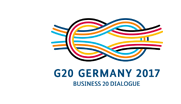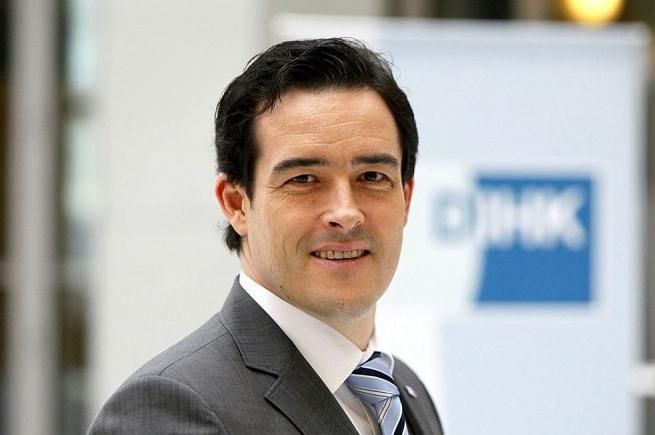The Association of German Chambers of Commerce and Industry (DIHK), one of the organizers of this year’s B20, calls Africa a continent of opportunities. Not all share this judgement. Why do you believe in Africa?
The African continent remains the second fastest-growing economic region after East Asia. African countries have achieved impressive economic growth over the past 15 years. Counting the ten fastest growing economies globally, seven are African. According to the African Economic Outlook 2017, Africa, however, experienced some headwinds in 2016, resulting in a slowdown in growth performance. Some pessimistic observers see this as a threat to the African growth story. The same report sees outlook for the medium- to long-term as positive and so we do see the African growth story.
We have to acknowledge that African countries have adopted more open policies, invested in infrastructure, and continued to pursue regional integration. These achievements ease business and increase the continent’s appeal as a partner in global trade and will do even more so in the future.
From a German businesses perspective, considerable opportunities exist throughout Africa. Surveys among German companies doing business in Africa frequently show that companies that are already engaged in the African continent are by and large very satisfied with their operations and profitability. This to me is another proof that Africa is indeed a continent of opportunities. Companies which are not yet active in Africa frequently report challenges and reasons why they do not consider Africa to be a business case. This should encourage us to underline the good reasons to engage in Africa.
On the actual challenge side, however, more needs to be done to create a more enabling environment for private investments. This is what we as DIHK are pursuing in the G20 and our national advocacy work and why we are strongly supporting the Compact with Africa Initiative.
A key to success is education. The United Nations Agenda 2030’s fourth goal addresses education, with the stated aim to “ensure inclusive and equitable quality education and promote lifelong learning opportunities for all.” What can businesses do to foster that goal in Africa?
Africa’s labor force makes up over 70 percent of the population and is increasing by 18 million people every year. Africa could, however, transform its population into a competitive advantage if governments were more willing to promote open, dynamic, and inclusive labor markets and encourage local as well as international businesses to join them swiftly.
Vocational training in Germany is the cornerstone for securing skilled labor in our companies. It increases our business locations' competitiveness and offers young people excellent career perspectives. The success story for dual vocational training “Made in Germany" is currently generating a high level of interest in Africa - and rightly so. Our model can serve as a role model. For German industry and politics, it is a mission and commitment at the same time to support countries, companies and young people.
Although the German dual system is not simply transferable via “copy and paste", it does have some success factors that can work anywhere in the world. Through our German Chambers of Commerce (AHK) abroad, the projects make the core elements of dual vocational training visible, to what extent they are transferable to countries in other regions of the world, and how they need to be adjusted to the local circumstances. Projects aim at creating sustainable structures. For their member companies and stakeholders, AHKs act as platforms as well as consultants and provide quality assurance for high-quality dual vocational training. Together with the experience gained locally, DIHK will provide important impulses for vocational education reforms in Africa.
Finally, not only education is important. It is just as essential to promote entrepreneurship, which is crucial for more dynamic labor markets, not the least because entrepreneurs are job creators. Start-up promotion is therefore equally essential.
The German Chambers of Commerce abroad are an important and growing element of German business promotion in Africa. The AHKs just recently opened their latest office in Zambia and are about to open another one in Tanzania soon. The Southern African – German Chamber of Commerce and Industry recently celebrated its 65th anniversary. From the expertise by the AHKs on this continent, what are the key success factors to make it in Africa?
The German Chamber Network is currently present in 11 countries on the African continent, and indeed we are still growing and intensifying our footprint locally. According to the experience of the German Chamber we see four crucial success factors of doing business in Africa. Firstly, it is a question of attitude and commitment to not only perceive uncertainty and challenges but to actively manage risks. Secondly, companies with a distinct Africa strategy focussing on clearly selected priorities are more successful compared to companies trying to adjust to deal with more than 50 countries at the same time. Regional hubs and clusters serve as a meaningful entry point to expand business activities and at the same time prioritize engagements.
Finding the right local partner and support network is a third pillar for success as we see it. The AHKs serve as a platform to enable our German companies to find competent business support services as well as reliable and serious local partners. Lastly, patience pays off. African markets are sometimes difficult to navigate in. Experience and local knowledge will contribute to success on the ground and needs to be built together with relevant networks over time.
The Sub-Saharan Africa Initiative of German Business (SAFRI) recently published a paper calling for “More Business with Africa” addressed to the German Government. (What) could the G20 learn from this?
The Sub-Saharan Africa Initiative of German Business (SAFRI) is jointly supported by the Association of German Chambers of Commerce and Industry (Deutscher Industrie- und Handelskammertag – DIHK), the Federation of German Industries (Bundesverband der Deutschen Industrie – BDI), the Federation of German Wholesale, Foreign Trade and Services (Bundesverband Großhandel, Außenhandel, Dienstleistungen – BGA), and the German-African Business Association (Afrika-Verein der Deutschen Wirtschaft).
SAFRI‘s aim is to improve the perception of Africa as a continent of opportunities among German businesses and to highlight their responsibility within this framework. SAFRI offers a platform for a united approach with our African partners focused on building and intensifying economic cooperation as well as promoting investment and trade. Through combining activities and positions, we as SAFRI add weight to the interest of German business in Sub-Saharan Africa both on the continent and in Germany.
With its latest policy paper, SAFRI wants to ensure the Federal Government is using the G20 presidency momentum and its respective Africa initiatives sustainably. By driving a distinct and coherent Africa growth initiative in domestic policies, Germany could meaningfully underpin its G20 commitments. The policy paper “More Business with Africa” is in this context focussing on how government can better support German businesses to stronger engage on the African continent. To us it is of utmost importance that after all the high-level talks and meetings in the G20 context, commitments are taken serious and meaningful policies are being implemented.

